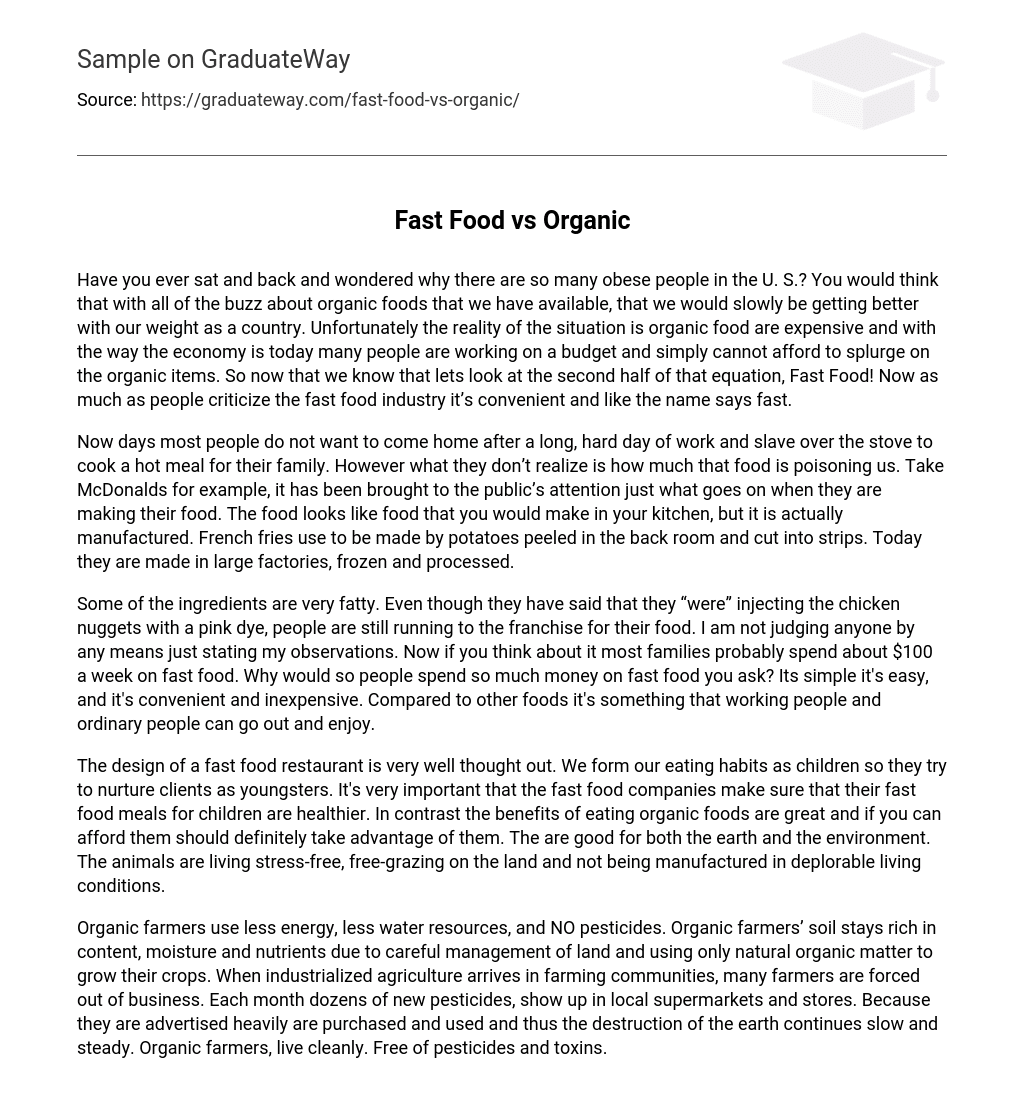One may question the reason behind the high rates of obesity in the United States. Despite the emphasis on organic foods, this issue continues to persist. The main factor responsible for this is the costliness of organic products, which many people cannot afford due to limited budgets caused by the current economic situation. Another contributing factor is fast food, which remains popular despite facing criticism because it offers convenience and quick service.
In today’s fast-paced society, individuals frequently opt out of preparing dinner for their family members following a tiring workday. Regrettably, many remain unaware of the detrimental effects associated with the meals they ingest. This is exemplified by McDonalds, where the true nature of their food production has been uncovered. Despite its seemingly homemade presentation, McDonalds’ food is actually mass-produced. Previously, French fries were manually made by peeling and cutting potatoes on-site. Nevertheless, presently they are produced in expansive factories, frozen, and subjected to processing.
Despite the pink dye injected into chicken nuggets and concerns about certain high-fat ingredients, people continue to flock to the franchise for their food. This observation does not aim to pass judgment on anyone but rather raises the question of why individuals invest a significant amount of money in fast food. The answer is simple: it offers convenience, ease, and affordability. When compared to other food options, fast food remains accessible for both working individuals and ordinary people who can simply go out and indulge.
Fast food establishments recognize the importance of shaping children’s eating habits and make careful efforts in designing their restaurants accordingly. Their main objective is to attract young customers and prioritize healthier meal choices for kids.
In contrast, organic foods provide several advantages that should be acknowledged when priced reasonably. These foods not only contribute to a healthier environment but also improve the well-being of animals. Unlike factory settings where animals endure terrible conditions, organic livestock lead a stress-free life by freely grazing on land.
Organic farmers prioritize the efficient utilization of energy and water resources while avoiding the use of pesticides. They diligently care for their land and solely utilize natural organic materials for cultivation, leading to the creation of fertile soil. However, the advancement of industrialized agriculture causes numerous farmers within farming communities to be displaced from their businesses. This is accompanied by a constant influx of new pesticides into local supermarkets and stores that are extensively promoted, bought, and utilized. Consequently, this perpetuates the gradual deterioration of the environment. Conversely, organic farmers wholeheartedly adopt a pesticide-free and toxin-free lifestyle.





